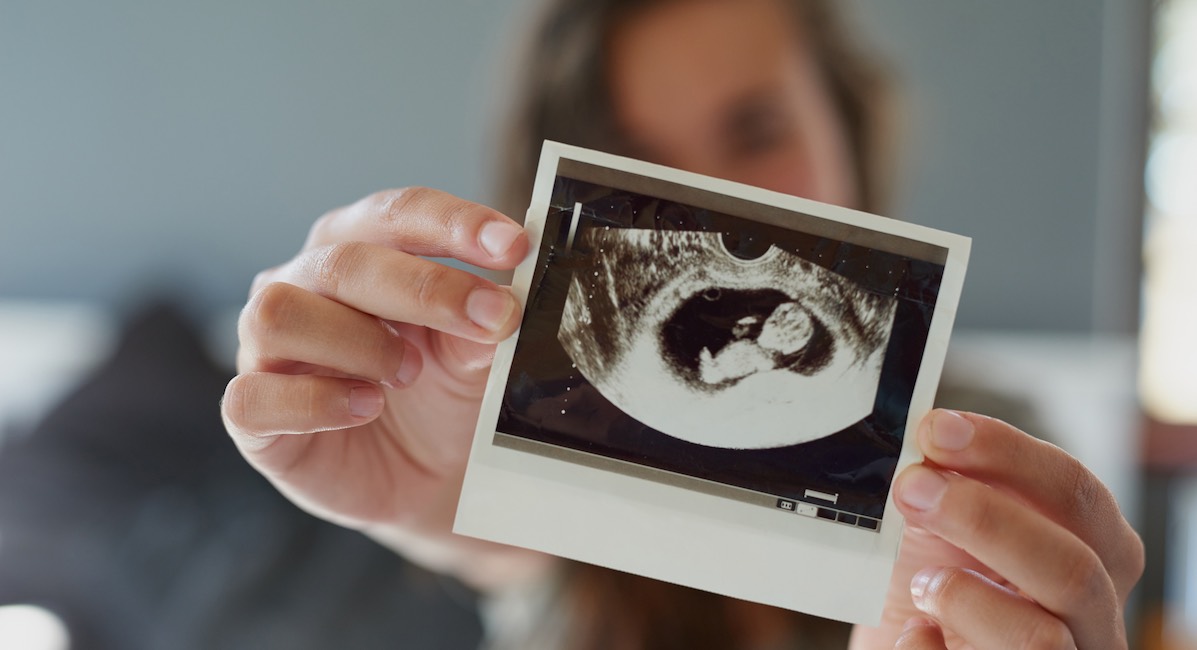According to the Georgia Department of Revenue, Georgia residents can now claim their preborn children with “detectable human heartbeat[s]” as dependents on taxes. The state will also recognize preborn humans as legal residents, counting them on census surveys and allowing women to file for child support once the child’s heartbeat is detected. The heartbeat begins during the embryonic stage of human development around 22 days, with the heartbeat detectable on ultrasound by six weeks gestation (four weeks after fertilization).
In a press release on Monday, the department announced that following the Supreme Court’s June 24 ruling in Dobbs v. Jackson Women’s Health Organization and the 11th Circuit Court’s July 20 ruling in Sistersong v. Kemp, any preborn child with a detectable heartbeat will be eligible for the Georgia individual income tax dependent exemption. Parents in Georgia may include on their 2022 state taxes any preborn child or children with a detectable heartbeat any time on or after July 20 through December 31, 2022. Taxpayers can claim a $3,000 exemption for each preborn child. Medical records or other documentation will need to be provided in order to claim a preborn child on a tax return.
Because the Dobbs ruling overturned Roe v. Wade, the 11th Circuit Court of Appeals ruled in Sistersong Women of Color Reproductive Justice Collective v. Brian Kemp that abortions in Georgia can be banned once a fetal heartbeat is detected by an ultrasound. The law, HB 481, includes exceptions for rape and incest as well as when a preborn child receives a serious medical diagnosis or a mother’s life is considered to be at risk, though deliberately killing a preborn human being via abortion is never truly medically necessary.
The Sistersong decision also redefined “natural person” in Georgia to include an embryo or fetus at any stage of development “in the womb.”
READ: Pro-life organization works to help Georgia and Virginia women and families in need
Critics decry the idea of labeling preborn human beings as “persons,” because it could mean affording them other human rights as well. “Fetal personhood is kind of an infinitely complicated topic with potentially infinite unintended consequences, because once you recognize a fetus as a person, they could have rights in all kinds of contexts. So you would have to work out what it meant for everything from inheritance law to tax law to civil liabilities rules to criminal law,” Mary Ziegler, a professor at University of California, Davis, School of Law told VICE News after the Georgia heartbeat law first passed in 2019.
Undelivered human beings have always been persons, and the founding fathers of the U.S. used the terms “person” and “human being” interchangeably. Though ensuring every human being has equal rights might seem like a bothersome task to those opposed to the idea, preborn humans are no less human than those outside the womb and are currently discriminated against due to size, level of development, degree of dependency, and environment.
Another of critics’ concerns is that women will be investigated for tax fraud and illegal abortions should they miscarry. Lauren Groh-Wargo, the campaign manager for Georgia’s Democratic gubernatorial nominee Stacey Abrams, tweeted, “So what happens when you claim your fetus as a dependent and then miscarry later in pregnancy, you get investigated both for tax fraud and an illegal abortion?”
Likewise, Vanity Fair political columnist Bess Levin argued, “What happens if a person claims an unborn child on their taxes and then has a miscarriage? What happens if they claim the unborn child and then travel out of state for an abortion?”
These concerns seem strange in light of the fact that any child (preborn or born) who is claimed as a dependent can tragically die through no fault of the parents. Only if an investigation into the child’s death is found to be warranted, would authorities investigate. According to H&R Block, a child who died during the tax year would usually be treated as a child who lived with the parents for more than half the year and can be claimed on taxes.
Georgia Governor Brian Kemp said he is “overjoyed” by the decision to give personhood to people in the embryonic and fetal stages of human life. “Since taking office in 2019, our family has committed to serving Georgia in a way that cherishes and values each and every human being, and today’s decision by the 11th Circuit affirms our promise to protect life at all stages,” Kemp said in July.
“Like” Live Action News on Facebook for more pro-life news and commentary!







